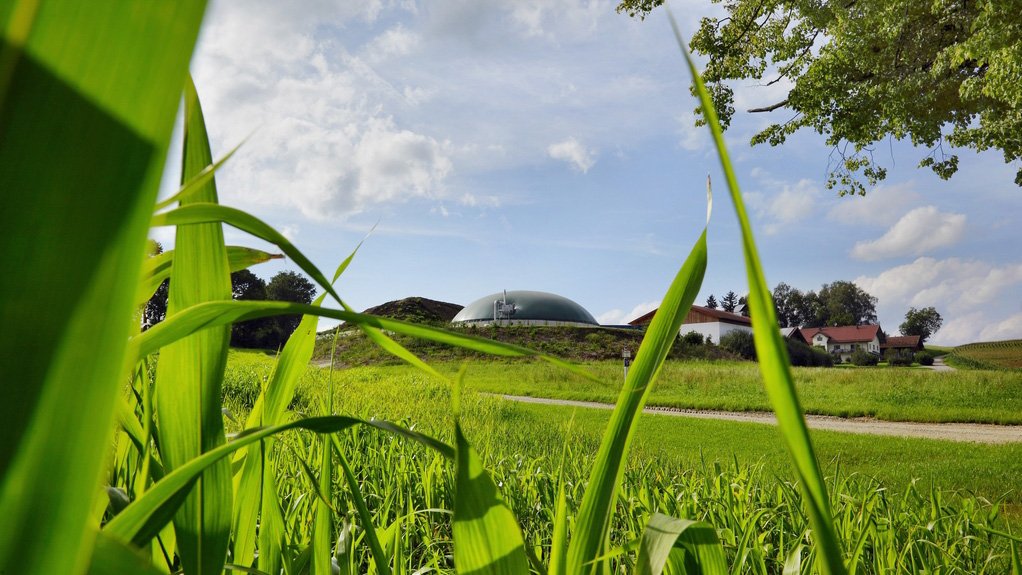Association offers value to stakeholders
Stakeholders in the biofuels and biogas industry can advocate for better legislation and connect with other stakeholders by being active members of associations such as the Southern African Biogas Industry Association (SABIA).
The association also makes it possible for stakeholders and interested parties to gain access to industry knowledge and news.
SABIA provides members with information pertaining to the biogas industry and on where improvements in the sector can be made. Active members can advocate for the changes they wish to see through participating in the lobbying for the amendment of policies.
“Members can be equal participants in lobbying for change, policy concerning tariffs and development programmes in the industry. Active members are critical in bringing attention to the industry’s challenges, as well as where policies need to be amended,” says SABIA chairperson Jason Gifford.
The growth in the number of new active SABIA members in the past year can help the association to lobby for policy and industry changes that can be done only at government level, he says.
Meanwhile, a system that SABIA has been advocating for, and which it hopes will be implemented soon, is a payment for ecosystem services (PES) tariff system.
“In its simplest form, the PES tariff system is the financial recognition of the environmental benefits of anaerobic digestion. Anaerobic digestion is taking hold as a renewable energy, with the only output being electricity,” says Gifford.
Anaerobic digestion makes it possible to convert potentially hazardous organic waste into products suitable for safe discharge or reuse, which include conversation into energy and nutrients that can be used as fertilizer among other products and uses.
A PES tariff system can serve as a foundation to further develop the biofuels and biogas industry. Industries, such as agriculture, that have potentially hazardous organic waste or organic waste that can be converted, can be compensated for such waste, which will be used in the anaerobic digestion process.
The system can benefit the agriculture sector and biofuels sector by not only preserving jobs but also attracting direct investment into the sectors.
National Conference
SABIA uses is its biennial biogas conference to add value for stakeholders in the biogas industry. The conference covers various industry-related topics through international and local speakers.
Owing to Covid-19 related restrictions, the conference has been structured as a virtual event taking place over three non-consecutive days.
The first day of the event took place on June 10, with the second and third days scheduled for July and August respectively.
“Our biggest concern about hosting the event on an online platform is that people are constantly online working remotely or in any number of other conferences and workshops online. To avoid an overload of information, we decided to have multiple sessions on multiple days over multiple months, rather than trying to do it in one session,” Gifford explains.
Further, the SABIA Market Position Paper, published February 2020, highlights the biogas sector’s potential for growth in various areas in the agriculture industry, potential job creation and potential carbon reduction, as well as how it compares to other renewable technologies. The paper is available for download from the SABIA website.
“In the position paper, we talked about the potential size of the sector interest – and it is enormous. That market potential will be realised with the right policies in place. However, it’s not garnering the attention that it should, given the impact on the job market, financial investment, energy security and positive environmental benefits,” he concludes.
Article Enquiry
Email Article
Save Article
Feedback
To advertise email advertising@creamermedia.co.za or click here
Announcements
What's On
Subscribe to improve your user experience...
Option 1 (equivalent of R125 a month):
Receive a weekly copy of Creamer Media's Engineering News & Mining Weekly magazine
(print copy for those in South Africa and e-magazine for those outside of South Africa)
Receive daily email newsletters
Access to full search results
Access archive of magazine back copies
Access to Projects in Progress
Access to ONE Research Report of your choice in PDF format
Option 2 (equivalent of R375 a month):
All benefits from Option 1
PLUS
Access to Creamer Media's Research Channel Africa for ALL Research Reports, in PDF format, on various industrial and mining sectors
including Electricity; Water; Energy Transition; Hydrogen; Roads, Rail and Ports; Coal; Gold; Platinum; Battery Metals; etc.
Already a subscriber?
Forgotten your password?
Receive weekly copy of Creamer Media's Engineering News & Mining Weekly magazine (print copy for those in South Africa and e-magazine for those outside of South Africa)
➕
Recieve daily email newsletters
➕
Access to full search results
➕
Access archive of magazine back copies
➕
Access to Projects in Progress
➕
Access to ONE Research Report of your choice in PDF format
RESEARCH CHANNEL AFRICA
R4500 (equivalent of R375 a month)
SUBSCRIBEAll benefits from Option 1
➕
Access to Creamer Media's Research Channel Africa for ALL Research Reports on various industrial and mining sectors, in PDF format, including on:
Electricity
➕
Water
➕
Energy Transition
➕
Hydrogen
➕
Roads, Rail and Ports
➕
Coal
➕
Gold
➕
Platinum
➕
Battery Metals
➕
etc.
Receive all benefits from Option 1 or Option 2 delivered to numerous people at your company
➕
Multiple User names and Passwords for simultaneous log-ins
➕
Intranet integration access to all in your organisation





















